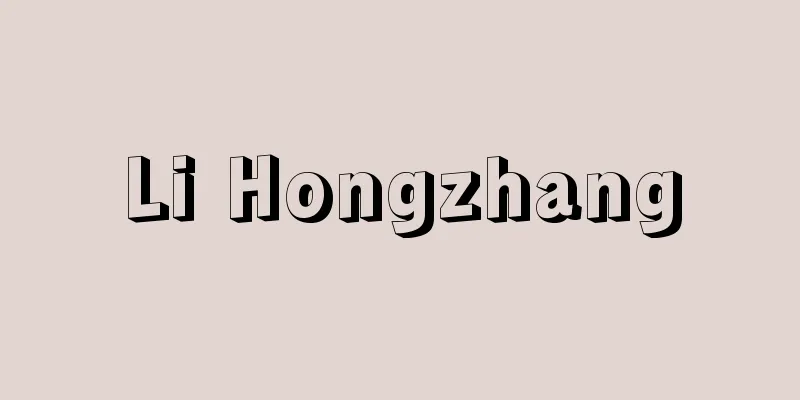Li Hongzhang

|
A representative politician in the late Qing Dynasty of China. Born in Hefei, Anhui Province. Became a Jinshi in the 27th year of the Daoguang era (1847). His pen name was Shaoquan and his posthumous name was Wenzhong. In 1853, he returned home and organized a training unit to fight against the Taiping army. Later, he served in the Xiang army as a staff officer for Zeng Guofan and gained his deep trust. In 1861, under Zeng's orders, he organized the Huai army, a volunteer force of about 6,000 men with the same characteristics as the Xiang army, in Anhui. In April 1862, he traveled from Anqing to Shanghai on a British ship and was immediately promoted to governor of Jiangsu. He played a major role in suppressing the Taiping Army in Jiangsu, together with the British and French armies, the Ever-Victorious Army, and the Qing regular army. After the fall of the Taiping Rebellion, he served as acting governor-general of Liangjiang, then as a royal commissioner, leading 60,000 Huai troops to suppress the Nian Army. Due to his achievements, he was appointed governor-general of Huguang in 67 and governor-general of Zhili and minister of Beiyang commerce in 70. He served in this position for 25 years, managing diplomacy, military affairs, and the economy. During this time, as the leader of the Westernization faction, he promoted the establishment of Western-style military industries and then private industries. Among the things he was involved in were the Jiangnan Manufacturing Bureau, the Jinling Machinery Bureau and other weapons manufacturing factories, the Shipping and Merchant Promotion Bureau (a steamship company), the Kaiping coal mine, the Mohe gold mine, the Tianjin Telegraph Bureau, the Tianjin-Yu Railway, and the Shanghai Machinery and Weaving Bureau. These were either government-run or government-supervised business ventures or government-business joint ventures, where private capital was raised and the government was supervising private entrepreneurs. He intended to take profits from foreign companies and to use these companies as a catalyst for the development of private companies, but due to domestic and international constraints he was unable to fully realize this, and did not achieve the same results as the industrial development policy of the Japanese Meiji government, which was implemented in parallel at the same time. He also purchased weapons and warships with customs revenues, founded the Beiyang Naval Academy to strengthen the Huai army, and established the Beiyang Navy, which at one time surpassed the Japanese Navy. However, he fell behind in the introduction of the latest technology, and both the army and navy were devastated in the Sino-Japanese War. In foreign affairs, due to the lack of national power, he almost always focused on a policy of compromise and of subjugating the barbarians with the barbarians, but he was fatally wounded by his defeat in the Sino-Japanese War and temporarily fell from power in central politics after the signing of the Treaty of Shimonoseki. However, his diplomatic skills were highly valued, and he was sent to Russia in 1696 to conclude the secret Russo-Chinese treaty, and as minister plenipotentiary, he signed the Treaty of Xin Chou after the Boxer War. [Shinji Kojima] Source: Shogakukan Encyclopedia Nipponica About Encyclopedia Nipponica Information | Legend |
|
中国、清(しん)末の代表的政治家。安徽(あんき)省合肥(ごうひ)の人。道光27年(1847)進士。字(あざな)は少荃(しょうせん)、諡(おくりな)は文忠。1853年帰郷して団練を組織し、太平軍と戦った。のち曽国藩(そうこくはん)の幕僚として湘軍(しょうぐん)で活動し、その厚い信任を得た。61年に曽の命を受けて安徽で湘軍と同性格の義勇軍淮(わい)軍約6000人を組織し、62年4月、イギリス船で安慶から上海(シャンハイ)に入り、ただちに江蘇巡撫(こうそじゅんぶ)に抜擢(ばってき)された。英・仏軍、常勝軍、清正規軍と共同して、江浙(こうせつ)の太平軍鎮圧に大きな役割を果たした。太平天国滅亡後、代理両江総督、ついで欽差(きんさ)大臣として6万の淮軍を率いて捻軍(ねんぐん)鎮圧にあたり、功により67年湖広総督、70年直隷(ちょくれい)総督兼北洋通商事務大臣に就任した。以後25年間その任にあって外交、軍事、経済の運営にあたった。この間洋務派の首領として、洋式軍事工業、ついで民間工業の創設を進めた。彼が関与して設立されたものに江南製造総局、金陵機器局などの武器製造工場、輸船招商局(汽船会社)、開平炭鉱、漠河金鉱、天津(てんしん)電報局、津楡(しんゆ)鉄道、上海機器織布局などがある。これらは官営、もしくは、民間資本を募集し、官が監督し民間企業家が経営する官督商弁あるいは官商合弁の経営方式を採用した。彼は外国企業からその利を奪い、またこれらの企業を呼び水として民間企業の発展を図ることを意図したが、内外の条件に制約されて、十分これを実現できず、同時代に並行して進められた日本の維新政府による殖産興業政策ほどの成果をあげられなかった。彼はまた関税収入をもって武器、軍艦を購入し、北洋水師学堂を創立して淮軍を強化し、北洋海軍を創立し、一時は日本海軍を凌駕(りょうが)した。しかし、その後の最新技術の導入に後れをとり、日清戦争で陸・海軍とも壊滅的打撃を受けた。外交では国力不足を理由に、ほぼ一貫して譲歩妥協による解決と夷(い)をもって夷を制する政策を主眼としたが、日清戦争の敗戦によって致命傷を受け、下関(しものせき)条約調印後中央政界から一時失脚した。しかしその外交手腕を買われて、96年ロシアに派遣されて露清秘密条約を結び、また全権大臣として、義和団戦争後の辛丑(しんちゅう)条約に調印した。『李文忠公全集』がある。 [小島晋治] 出典 小学館 日本大百科全書(ニッポニカ)日本大百科全書(ニッポニカ)について 情報 | 凡例 |
Recommend
Malik Shah
1055‐92 The third Sultan of the Seljuk Empire. Rei...
unanimism
…After the novel The Death of a Man (1911), he wr...
Sanskrit Worterbuch (English spelling)
…In 1816, F. Bopp (1791-1867), who studied under ...
JES
Abbreviation of Japanese Engineering Standard. Jap...
Cervical spondylosis - Cave spondylosis
⇒ Cervical spondylosis Source: About Shogakukan Di...
Haldane,JBS (English)
…British-born geneticist and physiologist. Born t...
De Graff (English spelling)
…Penguin Books was successful because of its extr...
Phenomena
…Shadow puppet theaters were also all the rage in...
Kazusa no Suke Hirotsune
A military commander in the late Heian period. A ...
Vengeful spirit - Onryo
The living spirits of people who have resentment ...
Hanging - Kakezukuri
A structure that juts out from a mountain cliff o...
Daedong River - Daedong River
This river originates at the southern foot of Mt....
SWU - Separate Work Unit
A separation work unit for isotope separation. It ...
Mansion
A plot of land containing the main house and othe...
Etenraku - Etenraku
Also written as Kotenraku. The name of a piece fro...



![Kumano River [town] - Kumanogawa](/upload/images/67cb6bca712b3.webp)





